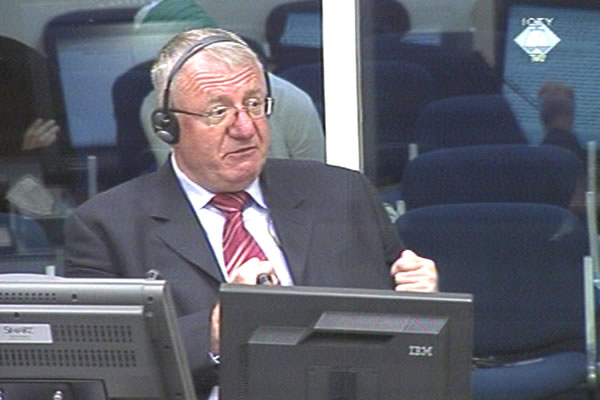Home
PROSECUTION WANTS APPEALS JUDGES TO REVERSE SESELJ’S ‘VITIATED’ JUDGMENT
In the notice of appeal against the acquittal of the Serbian Radical Party leader, the prosecution urges the Appeals Chamber to reverse the Trial Chamber’s ‘vitiated’ judgment. The prosecution calls on the appellate judges to find the accused guilty and to impose an adequate sentence or, alternatively, to order a re-trial
 Vojislav Seselj, defence witness of Radovan Karadzic
Vojislav Seselj, defence witness of Radovan Karadzic Today, as the deadline expired, the prosecution submitted its notice of appeal against the acquittal of Vojislav Seselj, the Serbian Radical Party leader. On 31 March 2016, the Trial Chamber acquitted Seselj. In its submission, the prosecution lists two grounds of appeal: the Trial Chamber’s errors in law and errors in fact.
In the first ground of appeal the prosecution argues that the trial judgment failed to sufficiently justify the Trial Chamber’s conclusions. The chamber failed to properly analyze the prosecution case and all the relevant evidence. The key issues in the case weren’t addressed in the judgment and the Trial Chamber did not address the substantial elements of the case. According to the prosecution, the errors ‘vitiated’ many parts of the judgment and cumulatively ‘undermined the judgment as a whole’.
As the prosecution stresses in its notice of appeal, the Trial Chamber’s conclusion that there was no evidence of a widespread or systematic attack against the civilian population was ‘vitiated’, as were the findings that civilians hadn’t been expelled from their homes and towns but had instead fled the combat zones in buses provided by the Serb authorities as a humanitarian gesture.
In the second ground of appeal the prosecution cites errors in fact that have led to the accused’s acquittal and the resulting ‘miscarriage’ of justice.
According to the prosecution, based on the entirety of the evidence, no reasonable trial chamber could conclude that the prosecution had failed to prove the chapeau elements of the crimes against humanity and the guilt of the accused as a participant in the joint criminal enterprise, as a person who instigated, aided and abetted the crimes committed by ‘Seselj’s men’, and as a direct perpetrator of persecutions, deportation and other inhumane acts. No reasonable trial chamber could conclude that Seselj was not liable for those acts.
The prosecution wants the Appeals Chamber to reverse the trial judgment, to convict Seselj of war crimes and crimes against humanity and to hand down an adequate sentence, or alternatively to order a retrial.
Linked Reports
- Case : Seselj
- 2016-03-31 JUSTICE MISCARRIED
- 2016-03-31 CHIEF PROSECUTOR: WITNESSES AND EVIDENCE TAMPERED WITH
- 2016-03-31 PARTIALLY DISSENTING OPINION OF JUDGE LATTANZI
- 2016-05-10 APPEALS CHAMBER APPOINTED IN VOJISLAV SESELJ’S CASE
- 2016-07-11 DEADLINES SET FOR APPEAL AGAINST VOJISLAV SESELJ'S JUDGMENT
- 2016-08-30 PROSECUTION: CONVICT OR RETRY SESELJ
